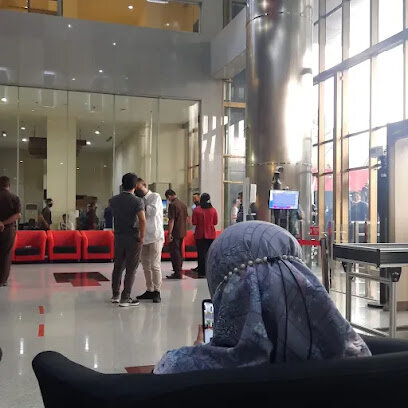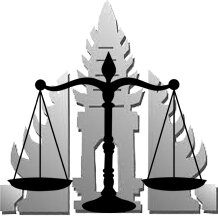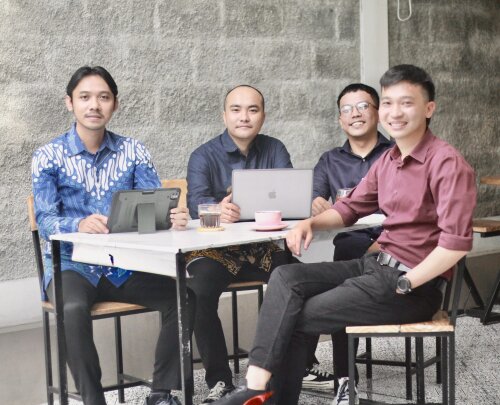Best Restructuring & Insolvency Lawyers in Jakarta
Share your needs with us, get contacted by law firms.
Free. Takes 2 min.
List of the best lawyers in Jakarta, Indonesia
About Restructuring & Insolvency Law in Jakarta, Indonesia
Restructuring and insolvency law in Jakarta, Indonesia is a specialized area of law that deals with situations where companies or individuals face financial difficulties and are unable to meet their financial obligations. The legal framework provides various mechanisms for debtors and creditors to resolve such challenges, whether through restructuring debts, entering into settlements, or initiating formal insolvency proceedings. Jakarta, as the commercial heart of Indonesia, often sees complex cases involving corporations, small-to-medium enterprises, and individuals. Navigating these legal processes helps businesses survive financial strain and maximizes value for creditors, while ensuring fairness and compliance with Indonesian laws.
Why You May Need a Lawyer
There are many situations where seeking legal advice or representation in restructuring and insolvency matters becomes essential. Some of the most common scenarios include:
- You or your business are unable to pay debts as they fall due and want to explore restructuring options to avoid bankruptcy.
- You are a creditor seeking to recover debts from a company or individual facing insolvency.
- You are unsure if filing for bankruptcy is the right option, and want to understand the consequences and alternatives.
- You want to negotiate with creditors or debtors to achieve a mutually agreeable settlement.
- You need to protect your assets or the assets of a company during financial distress.
- You are dealing with cross-border insolvency issues involving Indonesian and foreign entities.
Engaging an experienced lawyer can help protect your rights, clarify your options, and guide you through the complex procedures governed by Indonesian law.
Local Laws Overview
The primary legislation governing restructuring and insolvency in Jakarta, and across Indonesia, is Law No. 37 of 2004 concerning Bankruptcy and Suspension of Debt Payment Obligations (locally known as the "PKPU Law"). Some key aspects of the local legal framework include:
- Bankruptcy proceedings: Either creditors or debtors may file for bankruptcy if there are at least two creditors and the debtor has failed to pay at least one due and payable debt.
- Suspension of Debt Payment Obligations (PKPU): This process allows debtors and creditors to negotiate a restructuring plan under court supervision, aimed at avoiding bankruptcy.
- Role of Commercial Court: Insolvency and restructuring cases are handled by the Commercial Court in Jakarta and other major cities.
- Appointment of Receivers and Administrators: Court-appointed professionals manage the insolvency process, oversee asset management, and represent the interests of creditors and debtors.
- Reorganization vs. Liquidation: The legal process distinguishes between plans to reorganize debts and operations, and outright liquidation of a debtor’s assets.
- Cross-border considerations: Foreign creditors and cross-border claims are recognized, but subject to Indonesian legal procedures and priorities.
- Priority of Claims: Indonesian law sets out a strict order in which creditors are paid, with secured creditors and insolvency costs taking precedence.
Understanding the local laws is fundamental in achieving the best outcome, as the regulations can be complex and require detailed compliance.
Frequently Asked Questions
What is bankruptcy under Indonesian law?
Bankruptcy in Indonesia is a legal process where a debtor who cannot pay their debts is declared insolvent by the Commercial Court, allowing creditors to recover their claims through the liquidation of the debtor’s assets.
What is PKPU and how does it differ from bankruptcy?
PKPU, or Suspension of Debt Payment Obligations, is a court-supervised restructuring process that allows debtors and creditors to negotiate a settlement plan to avoid bankruptcy. Unlike bankruptcy, the aim of PKPU is not liquidation but debt reorganization and business recovery.
Who can file for bankruptcy or PKPU in Jakarta?
Both debtors and creditors can file for bankruptcy or PKPU. Creditors must have evidence of at least two creditors with one mature, unpaid debt. Debtors who anticipate financial trouble can also initiate PKPU to seek relief.
What role does the Commercial Court play in insolvency cases?
The Commercial Court in Jakarta is responsible for handling all bankruptcy and PKPU matters. It reviews petitions, oversees proceedings, appoints receivers and administrators, and issues binding decisions.
How long does the insolvency process typically take?
The duration depends on the complexity of the case. Standard bankruptcy proceedings are usually resolved within a few months, while PKPU processes can last up to 270 days, depending on whether an extension is granted.
Can individuals file for bankruptcy or is it only for companies?
Both individuals and companies can be declared bankrupt under Indonesian law, though the vast majority of cases involve corporate debtors.
What are the consequences of bankruptcy for a debtor?
Bankruptcy usually leads to the liquidation of assets, loss of control over business operations, and negative impacts on credit reputation. However, certain personal assets are protected by law.
How are creditors’ claims prioritized in bankruptcy?
Secured creditors and insolvency costs are prioritized over unsecured creditors. Employee claims, tax debts, and certain privileged claims also have specific protection under Indonesian law.
Can foreign creditors participate in Indonesian insolvency proceedings?
Yes, foreign creditors can file claims and participate in court-supervised proceedings in line with Indonesian law but must comply with all local procedural requirements.
Is it possible to challenge or appeal a bankruptcy decision?
Yes, parties unsatisfied with the Commercial Court’s decision can generally file an appeal with the Supreme Court of Indonesia within the specified legal timeframe.
Additional Resources
If you are seeking further information or assistance in Jakarta, the following resources and organizations can be helpful:
- Commercial Court at Central Jakarta District Court: Handles all bankruptcy and PKPU filings for Jakarta.
- Ministry of Law and Human Rights (Kemenkumham): Oversees legal professions and regulates court-appointed receivers and administrators.
- Indonesian Receiver and Administrator Association (AKPI): Professional body for insolvency practitioners, offering directories and information.
- Indonesian Advocates Association (PERADI): Directory of licensed lawyers specializing in restructuring and insolvency law.
- Legal aid organizations: Some non-governmental organizations may offer basic legal assistance and guidance for individuals in financial distress.
Next Steps
If you believe you need legal assistance with restructuring or insolvency in Jakarta, it is important to act quickly and consult with a qualified lawyer. Here’s how you can proceed:
- Assess your situation by gathering relevant financial documents, loan agreements, and correspondence with creditors or debtors.
- Consult with a lawyer who has experience in restructuring and insolvency matters in Indonesia. Many offer initial consultations to understand your case.
- Discuss your options, potential risks, and the best course of action based on your circumstances. This may include negotiation, restructuring, PKPU, or bankruptcy proceedings.
- Prepare for formal proceedings if necessary, which may involve filing documents at the Commercial Court and appointing a receiver or administrator.
- Follow your lawyer’s guidance throughout the process to ensure compliance with legal requirements and to protect your interests.
Taking early and informed action can maximize your chances of achieving the best possible outcome, whether you are seeking to recover debts or protect your business and assets.
Lawzana helps you find the best lawyers and law firms in Jakarta through a curated and pre-screened list of qualified legal professionals. Our platform offers rankings and detailed profiles of attorneys and law firms, allowing you to compare based on practice areas, including Restructuring & Insolvency, experience, and client feedback.
Each profile includes a description of the firm's areas of practice, client reviews, team members and partners, year of establishment, spoken languages, office locations, contact information, social media presence, and any published articles or resources. Most firms on our platform speak English and are experienced in both local and international legal matters.
Get a quote from top-rated law firms in Jakarta, Indonesia — quickly, securely, and without unnecessary hassle.
Disclaimer:
The information provided on this page is for general informational purposes only and does not constitute legal advice. While we strive to ensure the accuracy and relevance of the content, legal information may change over time, and interpretations of the law can vary. You should always consult with a qualified legal professional for advice specific to your situation.
We disclaim all liability for actions taken or not taken based on the content of this page. If you believe any information is incorrect or outdated, please contact us, and we will review and update it where appropriate.

















